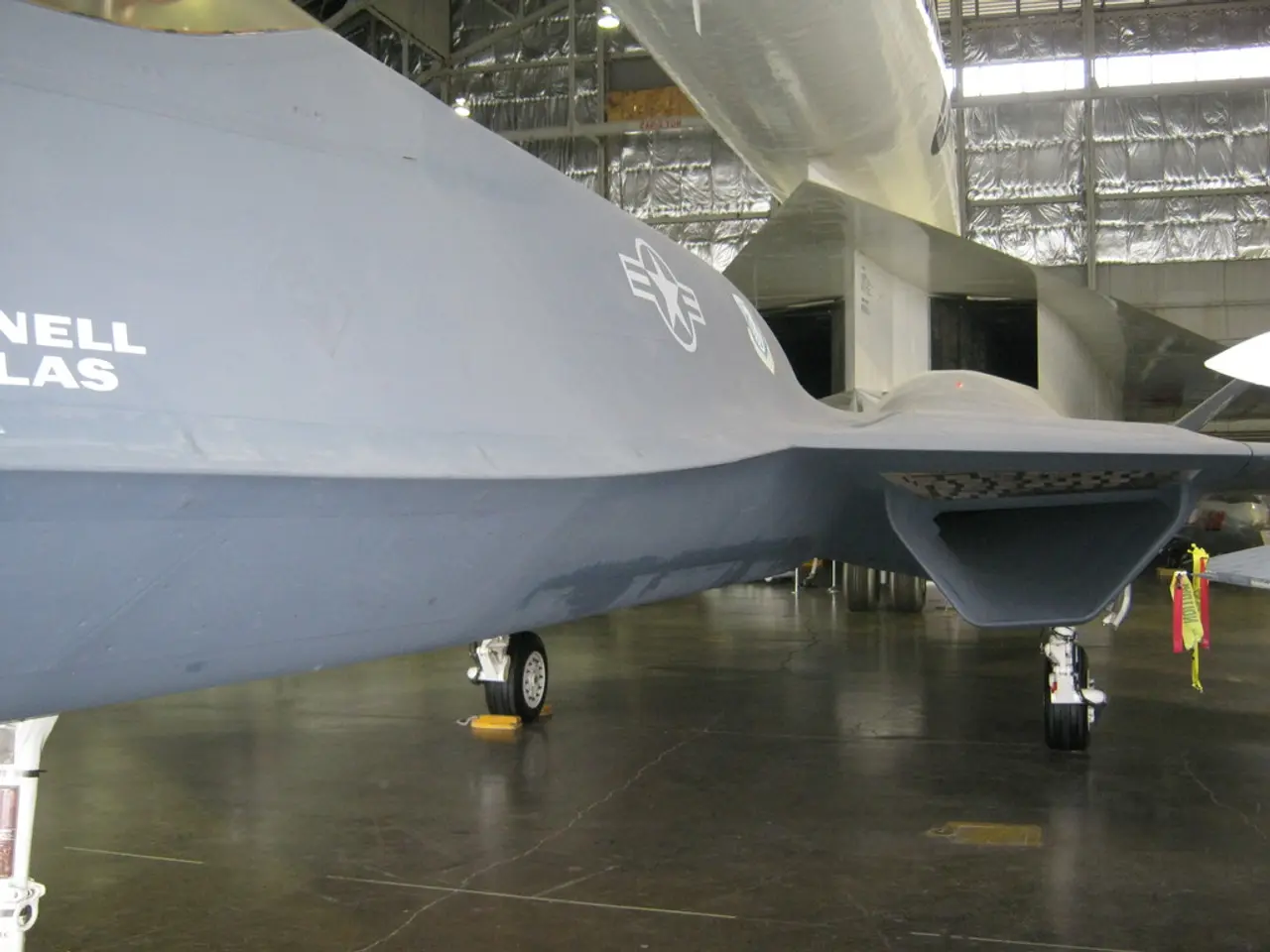Diving Ryanair profits due to cheaper fares sought by passengers - is it worth investing in airline shares?
Ryanair, Europe's leading low-cost airline, has faced a challenging fiscal year 2025, with a profit drop primarily due to rising costs and a decrease in average ticket prices. According to Susannah Streeter, head of money and markets at Hargreaves Lansdown, these factors have resulted in a 10% plunge in average ticket prices.
Michael O'Leary, Ryanair's CEO, emphasised the importance of making flying cheaper in the UK. He believes that it is "vital" for the UK to reduce airline ticket costs.
In response to the UK's autumn Budget decision to increase the tax on airline tickets, Ryanair has announced plans to cut flights to and from UK airports by 10% next year. This move is a direct consequence of the increased costs from the higher Air Passenger Duty (APD) and operational challenges.
However, Ryanair has demonstrated its network flexibility by compensating for these cuts by expanding capacity in other markets, adding 31,000 more flights and six million extra seats overall for the winter season. This growth is focused on Italy, Ireland, and other European airports.
The fiscal year 2025 saw a 9% increase in operating expenses for Ryanair, including significant rises in staff costs, depreciation, and route charges. Despite a 4% increase in total revenues, driven by higher ancillary income and passenger traffic, these costs were insufficient to prevent a 24% drop in operating profit and a 16% fall in net profit.
The worst of the consumer caution appears to be easing off, with falls in average fares moderating and some strong forward booking trends emerging, according to Streeter. The airline industry has rebounded strongly since the Covid-19 lockdowns.
Airlines, however, operate in a highly competitive sector with customers ruthlessly shopping around for the lowest fare. They are also heavily exposed to fuel prices, which can contribute to volatile share price performance.
Moreover, airlines often have a high debt-to-equity ratio compared to other sectors, which can make for a bumpy ride for investors. Running an airline comes with a lot of costs, including buying or leasing planes and maintaining them.
The chancellor, Rachel Reeves, announced in the Budget last week that air passenger duty will rise from the 2026/27 financial year, with up to £2 added to the cost of an economy ticket for a short-haul flight. This increase in APD will likely impact other airline companies as well.
Despite these challenges, O'Leary remains optimistic, stating that Ryanair is capturing record share gains across most markets due to customers switching to Ryanair for lower air fares.
[1] Source: Ryanair's FY2025 financial report [2] Source: Hargreaves Lansdown report [3] Source: Ryanair's winter capacity announcement
- In light of the increase in Air Passenger Duty (APD), finance experts express concerns about the potential impact on the overall airline industry, predicting a possible surge in airline ticket prices, which could affect individuals' lifestyle and investing decisions.
- As Ryanair faces a challenging financial year due to rising costs and decreased ticket prices, business analysts point out that airlines, despite focusing on making flying cheaper, often have a high debt-to-equity ratio, making them volatile for investors.
- With the growth of the low-cost travel sector, particularly due to airlines like Ryanair offering lower air fares, the travel industry is becoming more competitive, forcing companies to invest in cutting expenses, such as reducing flights to specific regions, while simultaneously expanding capacity in others, like Italy and Ireland.




